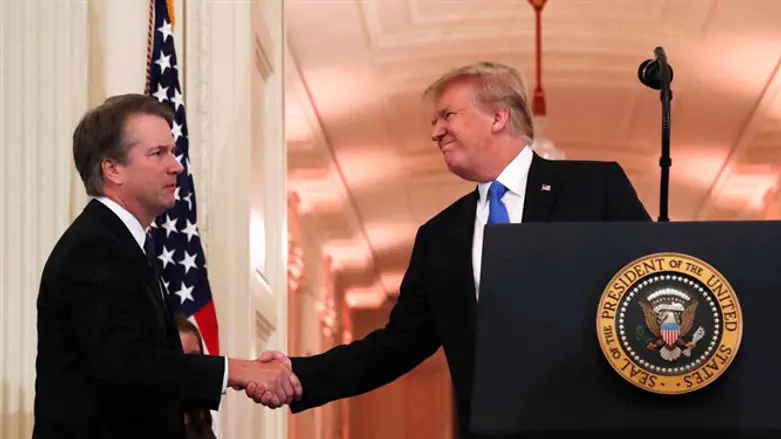
Supreme Court nominee Brett Kavanaugh will be confirmed by the Senate prior to the November midterm elections, said Senate Majority Leader Mitch McConnell, despite strong opposition from Senate Democrats in the narrowly divided chamber.
Last month, McConnell (KY-Republican) vowed to bring President Donald Trump’s Supreme Court nomination to a vote during the Senate’s fall session, without specifying whether the vote would take place before or after the November midterm elections.
"The Senate stands ready to fulfill its constitutional role by offering advice and consent,” said McConnell. “We will vote to confirm Justice Kennedy’s successor this fall.”
On Friday, however, McConnell made clear that Kavanaugh’s confirmation hearings would be completed in September and the final vote held by the first of October – more than a month before the midterm elections.
"The timetable typically for recent Supreme Court justices, if we stuck to that timetable and I intend to, would give us an opportunity to get this new justice on the court by the first of October," McConnell said.
Democrats have called on the party’s 49-member Senate caucus (including two independents) to block the nomination. With the removal of the filibuster for court nominations, however, Democrats will have to convince two Republican senators to oppose Kavanaugh.
Some Democratic senators up for reelection from states Trump won by wide margins in 2016 will be under pressure not to vote down Kavanaugh’s nomination. Joseph Donnelly of Indiana, Claire McCaskill of Missouri, Jon Tester of Montana, Heidi Heitkamp of North Dakota, and Joe Manchin of West Virginia – all from states Trump won by 18-points or more – are possible defectors. In 2017, three of the red state Democratic senators – Donnelly, Heitkamp, and Manchin - crossed party lines to vote for the confirmation of Neil Gorsuch.
Current Supreme Court Justice Anthony Kennedy’s resignation from the court, set to take effect on July 31st, and his likely replacement by Kavanaugh, could significantly shift the court towards the right, resulting in a reliable 5-4 majority of conservative justices.
While Kennedy, a Reagan appointee, had initially been considered one of the court’s more conservative justices, he later emerged as a “swing-vote” on the court – a label Kennedy resented - particularly after the resignation of Sandra Day O’Connor in January 2006.
